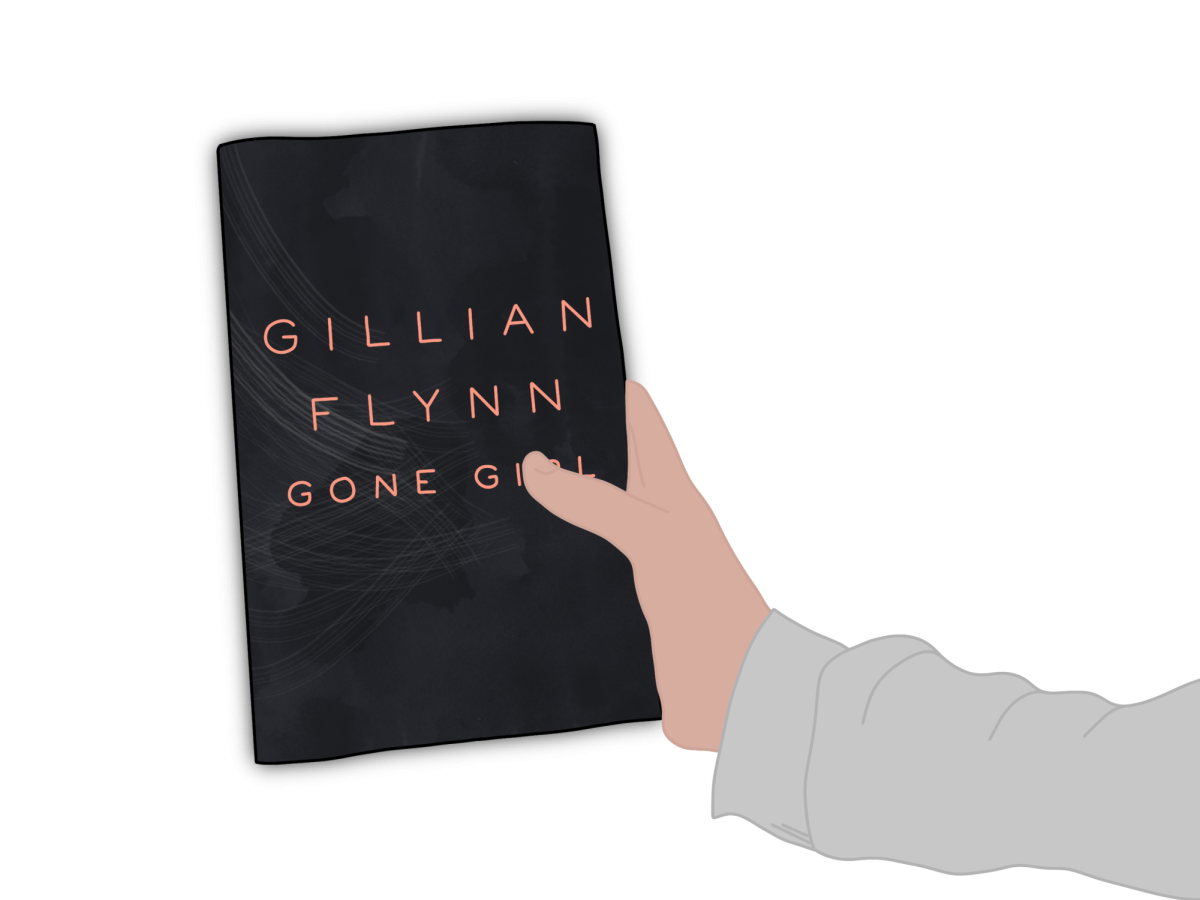As someone who struggles with self-diagnosed “seasonal depression,” I have been craving an escape from the solitude this dreadful weather has forced upon us. However, I’m happy to share that I have officially found a 368-page remedy: Shelby Van Pelt’s “Remarkably Bright Creatures.” While the first few chapters take an open mind and a bit of diligence to get into, I promise this novel is worth every minute of your time.
I often pick up books with aesthetically pleasing covers, and “Remarkably Bright Creatures” definitely fits the bill. But please don’t let the vibrant cover, with most of the space taken up by an orange octopus, fool you. “Remarkably Bright Creatures” features a highly observant (and often lovable) octopus named Marcellus. And yes, I recognize that reading about an octopus and his thoughts seems strange — I was hesitant at first, too. But at its core, this novel is about the importance of human connection and the small communities we lean on through hard times.
Instead of counting the seconds down during my classes, or scrolling through my phone, this book inspired me to become more aware of life’s mundane moments. The book centers around the interconnected nature of the small-town setting, showcasing how community builds in the aggregate. Although not on the coast of Washington state, Hamilton, offers a close comparison. When I walk to FoJo Beans for my morning coffee and actually engage with the baristas, my morning grogginess fades as the cheerful small talk ensues. When I open myself up to outside connection, I can find meaning in any human interaction instead of avoiding eye contact at all costs. This book taught me how the simple moments of life can be remarkable. How a small town can be magical. And most importantly, “Remarkably Bright Creatures” reminded me that you can start over as many times as you need.
The story focuses on the life of Tova Sullivan, an elderly woman living in the fictional town of Sowell Bay, Wash. A Swedish immigrant, a widow and a victim of an unfathomable loss, Tova’s life has been molded by waves of grief and immense change. She has had to start over again and again, building back her strength and life’s purpose like the shifting tides of the Puget Sound. Amidst her grief, Tova finds solace and resilience in a rigid routine; her daily trips to the grocery store, night shifts at the aquarium and weekly book club meetings keep her connected to the community whilst distracted from her sadness. Throughout the novel, these shifting depictions of loss, memory and camaraderie weave a multifaceted view of place and perspective.
Though worried about the relatability of a book about an old lady, the plethora of unique secondary characters with fresh, youthful viewpoints kept me hooked. The diversity of characters builds a novel teeming with charming storylines that branch off and converge with Tova’s life. We get to know these characters through the shifting perspective of each chapter. There are a handful narrated by periphery characters, but the book mostly oscillates between Tova, Marcellus and Cameron Cassmore. We don’t get Cameron’s perspective until a bit further into the book, but he distinguishes himself as a dual-protagonist in his own right.
My favorite part of the book was the progression of the characters. The more I read, the more invested I became in each’s happiness. However, Van Pelt’s enchanting description of Sowell Bay was a close second. The prose transported me to Washington, surrounded by the rich blues of the ocean and the dark emerald hues of the pines. The imagery deftly provides a subtle link between the tight-knit coastal community and its surrounding natural environment, further showcasing Van Pelt’s transcendence of place.
Now, back to the Octopus. Marcellus’s narrative is limited, but he offers an unbiased perspective on the human condition. He too experiences loneliness and despair, living within the confines of his glass cage, but like Tova, he tries earnestly to make the most of his situation. Tova’s inability to forge lasting and vulnerable human connections stems from her fear of loss, but with Marcellus, she is able to truly open up, even though verbal communication remains one-sided. In the end, this magnificently unconventional relationship brought me to tears.
The rat race of Colgate can get the best of us, and the constant pressure to start the internship and job search, forge new friendships and navigate busy class schedules often distracts us from life’s immediate pleasures. Even though “Remarkably Bright Creatures” didn’t motivate me to get off the grid and work at an aquarium (although tempting), the book reminded me how important it is to focus on the depth, not just the breadth, of our relationships and accomplishments. After all, they always say that happiness, not success, determines one’s quality of life. “Remarkably Bright Creatures” encourages us to find the beauty in the little moments between friends, ourselves and even ocean dwellers, given we take the time to listen. So if you haven’t yet, I beg you to put this book at the top of your reading list; you certainly won’t regret it.
Rating: 5/5














